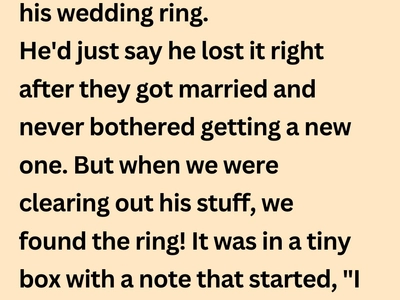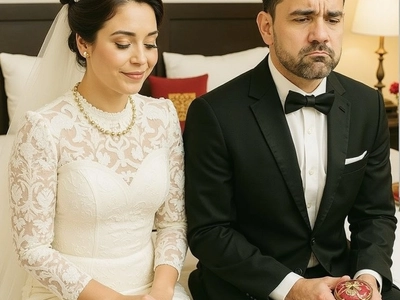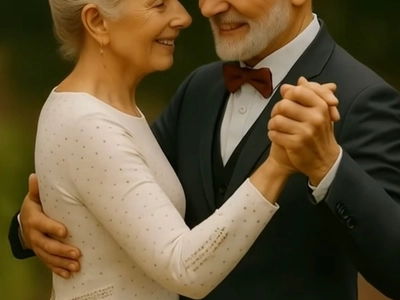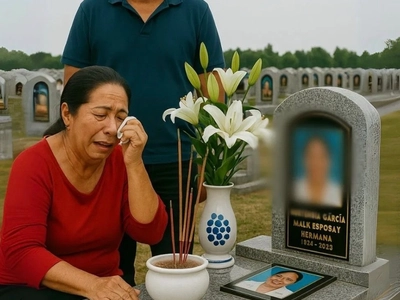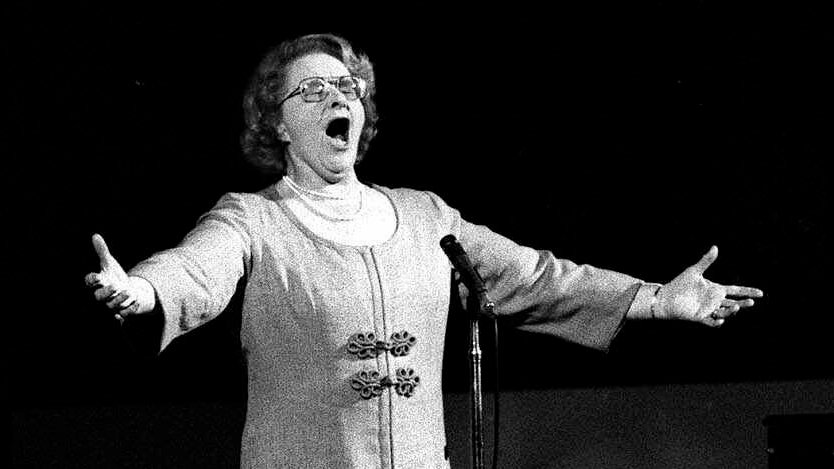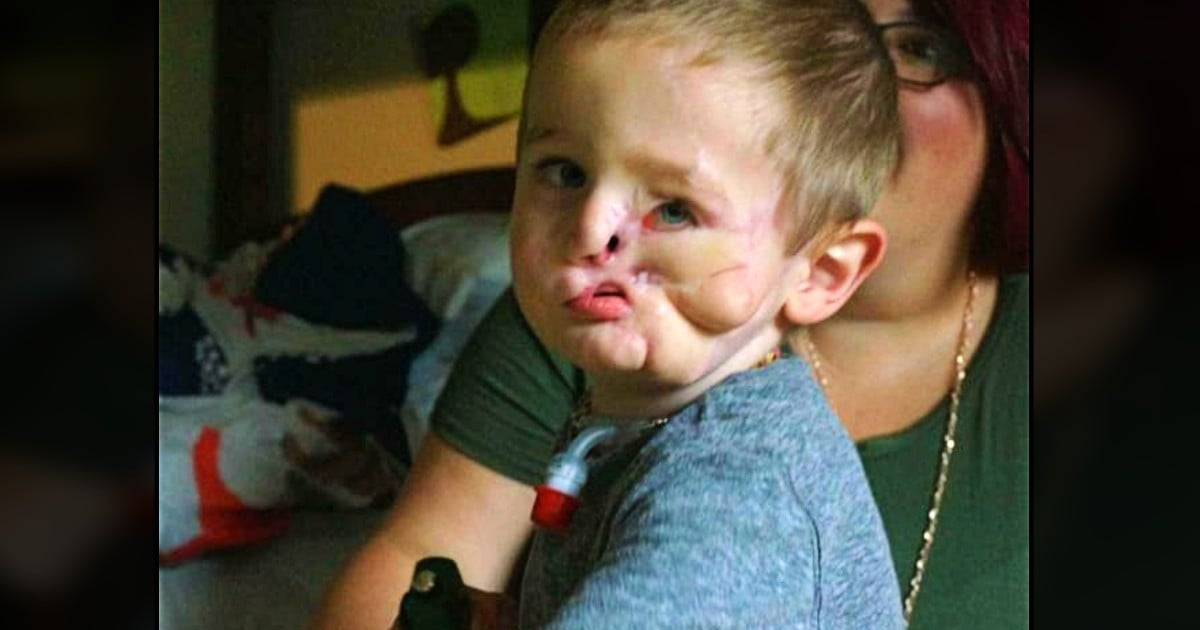The Hidden Meaning of a Simple Box
Maria had always been a woman who noticed details. She could remember the way her children’s hair smelled after running in the summer sun, the faint scratches on the kitchen table from years of family dinners, and the rhythm of her husband’s breathing as he drifted to sleep beside her. But there was one detail that always sat heavy in her heart, though she rarely spoke of it: the absence of his wedding ring.
From the day they married, she had worn hers with quiet pride. The thin gold band was not grand or expensive, but to her it held the weight of promises, of hope, of the life they were choosing together. Every time she looked down at her hand, she remembered the trembling way he had slipped it onto her finger, the light in his eyes, and the certainty that they would walk through whatever life threw at them—side by side. But when she looked at his hand, she saw only bare skin. No ring. No outward sign.
At first, she thought little of it. Perhaps it was the kind of thing men did—forgetfulness, practicality, or just habit. But after the honeymoon, after the first years, after the children, the missing band began to whisper louder. Why didn’t he wear it? Did it mean less to him than it did to her?
She had asked him once, early on. She remembered the way his face softened, the way his lips curved in that easy smile that always seemed to calm her. “I lost it long ago,” he had said gently. “The ring isn’t what matters—it’s us.”
She had nodded, because what else could she do? He was a good man, a devoted husband, a loving father. His eyes lit up when she entered the room. His hands, though ringless, held hers through every storm. Still, the answer had never sat right. The unease lingered, quiet but steady, like a low hum in the background of a song.
Time, however, has a way of softening questions. Decades passed, filled with birthdays, scraped knees, long car rides, whispered arguments, and late-night reconciliations. They raised their children in the kind of home that felt alive with warmth, where laughter echoed off the walls and love seeped into the smallest corners. He was there through it all: first jobs, graduations, heartbreaks, weddings of their own children. Not once did Maria doubt his devotion. And yet, that missing ring remained like a puzzle piece she could never quite place.
She told herself it didn’t matter. She told herself she was being foolish, clinging to a symbol. And maybe she was. After all, hadn’t he shown her in countless ways that he was hers? Hadn’t he proved that love lived in actions, in choices, not in gold? Still, on quiet nights, when the world was still and memories crept in, her gaze would sometimes drift to his hand, and that pang in her chest would return.
Then came the day when the house grew quiet in a different way. Her husband passed, leaving her with the echo of his laugh, the memory of his touch, and the silence of his absence. The grief was heavy, though laced with gratitude for the years they had shared. Their children, now grown, came to help her sort through the pieces of his life—the shirts folded neatly in the drawers, the books lined with notes in the margins, the small treasures he had kept hidden away.
It was on one of those afternoons, the kind where the air felt too still, that they found the drawer. An old wooden drawer, tucked in the corner of his desk. Beneath letters yellowed with age, faded photographs, and scraps of paper that only he would have thought to save, there was a small box.
Her daughter opened it first, and inside, resting quietly, was the wedding ring. It shone softly, as if time had not touched it, as if it had been waiting patiently all those years. Maria’s breath caught. Her hand trembled as she reached for it, and in that moment, she was not an old woman but a young bride again, watching her husband slip the ring onto her finger.
But there was more. Tucked beside it was a folded note. The paper was worn, the handwriting unmistakably his—careful, steady, the kind of script he used when the words mattered. Maria opened it slowly, and her eyes moved across the page.
“I never wore this ring because I wanted to keep it safe. To me, love isn’t proven by something on my finger. It lives in every day I chose you, every smile we shared, and every challenge we overcame together. The ring was just a symbol. You were always the promise.”
The words blurred as her vision filled with tears. They weren’t the tears of fresh grief but something softer, something deeper. It was as if the last piece of the puzzle had finally clicked into place. All those years, she had carried quiet questions, little doubts that she never let surface. And here was his answer, waiting for her in the silence of that drawer.
Her children watched her, their own eyes glistening, but they said nothing. This moment was hers. She pressed the ring to her heart, closing her eyes. For the first time in years, the unease dissolved. She felt peace settle over her like a warm blanket.
That evening, when the house grew still again, Maria sat by the window, the fading sun painting the room in gold. She held the ring in her hand for a long time, turning it over, feeling its weight. Then, with slow care, she slid it onto her finger. It fit perfectly, as if it had been waiting all along. She whispered into the quiet, her voice steady, “Now I’ll wear it for both of us.”
In that moment, she understood what he had always tried to show her—that love had never been about the ring. It had lived in the life they built, the family they raised, the laughter, the struggles, the ordinary days that turned into extraordinary years. The ring was just gold. Their love was everything else.
She wore it from that day forward, not as a reminder of what was missing, but as a symbol of what they had always shared. And in her heart, she knew: he had never needed to wear the ring, because he had carried their promise in every choice he made. Now, she carried it too.
